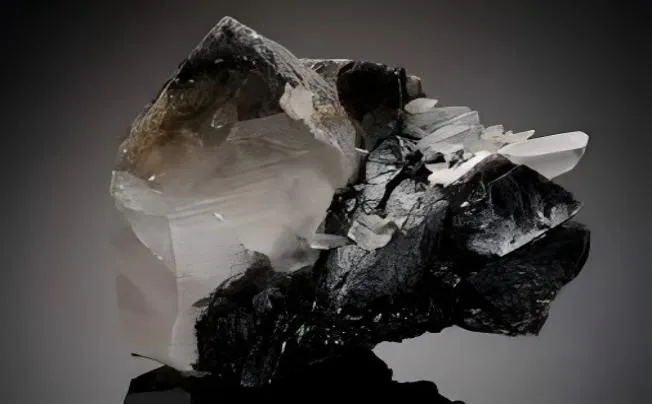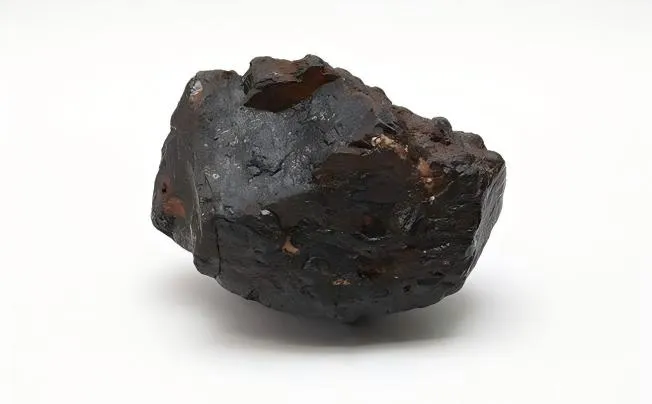Silicon, a versatile and abundant element, is crucial in the modern technological landscape. As the second most abundant element in the Earth's crust after oxygen, silicon is widely used in various industries due to its unique properties.
The Current State of Silicon Production in Russia
In the realm of silicon production, Russia stands as a notable player with several major producers driving the industry forward.
Analysis of Russia's Position in the Global Silicon Market
Russia holds a significant position in the global silicon market, with its production capacity and quality competing on an international level. The country's strategic geographical location provides access to abundant resources essential for silicon production, giving it a competitive edge in the market.
Additionally, Russia's strong focus on technological advancements and innovation has allowed its silicon industry to keep pace with global trends and standards. With a growing emphasis on sustainability and efficiency in manufacturing processes, Russian silicon producers are poised to make further strides on the global stage.
Comparison with Other Leading Silicon-Producing Countries
When comparing Russia's silicon industry with other leading producers such as China, the United States, and Norway, certain distinctions come to light. While China leads the world in terms of sheer volume of silicon production, Russia stands out for its commitment to quality and technological sophistication.
Applications of Russian Silicon Products
Diverse Range of Industries Utilizing Russian-made silicon Products
Silicon, a versatile material, finds applications across various industries in Russia. The electronics industry heavily relies on Russian-made silicon for manufacturing semiconductor devices like transistors, diodes, and integrated circuits. Moreover, the automotive sector utilizes silicon in sensors, actuators, and engine management systems to enhance performance and fuel efficiency.
In the construction industry, silicon-based sealants and adhesives play a crucial role in ensuring durability and weather resistance for buildings and infrastructure projects. Additionally, the healthcare sector benefits from Russian silicon products in medical devices such as pacemakers and imaging equipment.
Challenges and Opportunities for the Future
Environmental Concerns
The silicon production process in Russia, like in many other countries, poses significant environmental challenges. The extraction of silicon involves energy-intensive processes that contribute to greenhouse gas emissions and other pollutants.
Addressing these environmental concerns is crucial for the sustainable growth of the industry. Implementing cleaner production methods, investing in renewable energy sources, and adopting advanced technologies to reduce emissions are essential steps to mitigate the environmental impact of silicon production in Russia.
Paving the Way for Innovation
The Russian silicon industry is witnessing several emerging trends that are shaping its future landscape. One such trend is the growing demand for high-purity silicon used in advanced electronics and solar panel manufacturing.
This shift towards high-tech applications presents an opportunity for Russian producers to focus on quality and innovation to meet market demands. Additionally, advancements in nanotechnology and materials science are opening up new possibilities for novel silicon-based products and applications, providing a fertile ground for research and development within the Russian industry.
Strengthening Global Presence
Collaborations and partnerships play a crucial role in enhancing Russia's position as a key player in the global silicon market. By establishing strategic alliances with international companies, research institutions, and government bodies, Russian silicon producers can access new technologies, markets, and investment opportunities.
Collaborative efforts can also lead to knowledge exchange, skills development, and mutual growth within the industry. Leveraging these partnerships effectively can help propel Russia towards becoming a leading hub for silicon production innovation on a global scale.
Geographical Advantages and Challenges for Silicon Production
Silicon production in Russia is influenced by its vast geographical landscape, presenting both advantages and challenges. The country's abundant natural resources, such as quartz and coal, provide a solid foundation for silicon production. Regions like Siberia have significant reserves of raw materials essential for silicon manufacturing.
Moreover, the proximity to major transportation routes, including railways and waterways, facilitates the efficient distribution of silicon products across domestic and international markets. However, Russia's geographical expanse also poses challenges for silicon production.
The harsh climate conditions in certain regions can impact production processes and logistics. Extreme temperatures during winter months may require additional heating costs to maintain operational efficiency.
Furthermore, the vast distances between production facilities and end markets can lead to increased transportation costs and logistical complexities. Addressing these challenges requires strategic planning and investments in infrastructure to optimize the supply chain.
Government Policies and Regulations Affecting the Industry
Government policies play a crucial role in shaping the landscape of silicon production in Russia. Regulatory frameworks regarding environmental standards, labor practices, taxation, and trade agreements have a direct impact on the industry's operations. The Russian government has implemented initiatives to promote local manufacturing through incentives such as tax breaks or subsidies for domestic producers of silicon products.
Additionally, regulations concerning intellectual property rights protection contribute to fostering innovation within the industry. However, stringent regulatory requirements related to environmental protection can also pose challenges for silicon producers in Russia.
Compliance with emissions standards and waste management regulations adds operational costs and necessitates investments in sustainable technologies. Moreover, fluctuations in government policies or geopolitical tensions may create uncertainties that affect market dynamics for silicon exports from Russia.
Technological Advancements Driving Innovation in Russian Silicon Production
Technological advancements are driving innovation within the Russian silicon production sector, enabling manufacturers to enhance efficiency and product quality. Investments in research and development have led to the adoption of advanced manufacturing processes such as plasma-arc technology for refining raw materials into high-purity silicon.
Automation systems integrated with artificial intelligence algorithms optimize production processes by monitoring variables like temperature control and material flow. Furthermore, digitalization initiatives are revolutionizing how data is collected and analyzed throughout the value chain of silicon production in Russia.
Predictive maintenance strategies leveraging IoT sensors enable proactive equipment maintenance to minimize downtime and enhance operational reliability. Collaborations with academic institutions and technology partners foster a culture of continuous learning and knowledge exchange within the industry.







